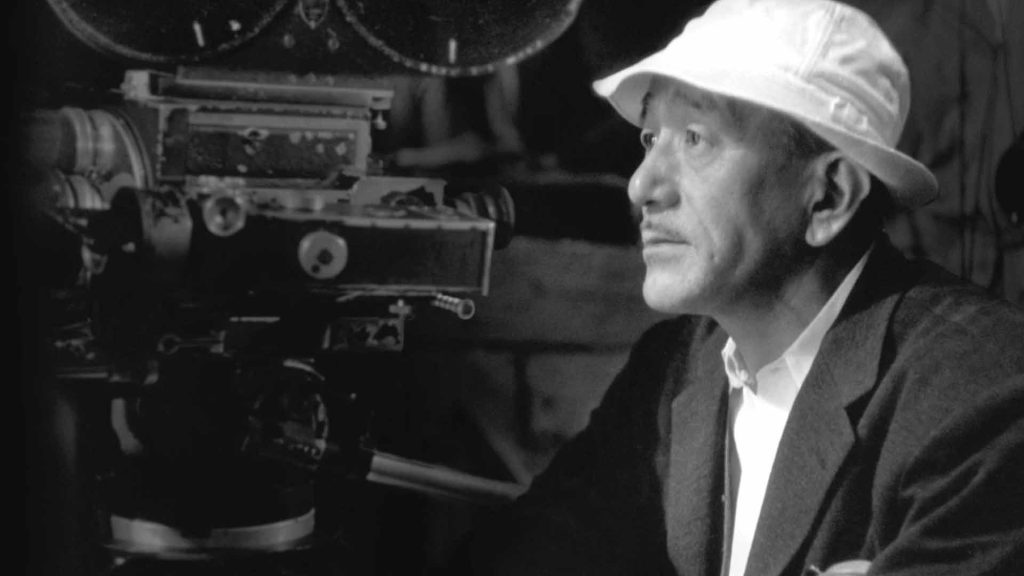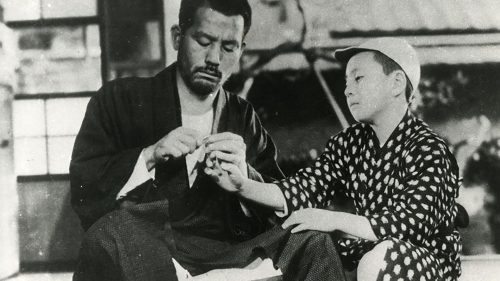
On the occasion of the 120th anniversary of the great Japanese director’s birth, the Venice Film Festival is presenting in the Venice Classics section the restored version of Chichi Ariki, filmed by Ozu in 1942. An essential piece in the canon of the Japanese maestro.

In his early cinema, Ozu had shown appreciation for American influence, but in 1937, when he wrote that Chichi Ariki that would be made in 1942, times had already changed. The regime had launched a culture war, at the same time as China, to spur collective sacrifice and a sens...
One of Ozu’s bittersweet school life comedies. Camraderie between university students, flirting with the cafeteria girl… and bad grades. Whatever. You cannot find a job with a degree either.
A beautiful transition from comedy to drama in the story of an office worker who loses his job, finds another as a human billboard, and hides the fact from his wife. One day, she runs into him by chance, and feels ashamed.
A tender look at childhood in Ozu’s most famous silent film. Two brothers, children of an office worker, lose respect towards their father when they see him act clownishly to appease his boss.
A gangster movie. Kinuyo Tanaka is a modern girl who looks up at American vamps. She is in love with a young gangster. The film ends on a sad note, with a touch of hope.
A sentimental comedy following an unmarried father’s infelicitous love for the destitute girl who helped him. Ozu seems to reminisce about his childhood neighbourhood of Fukagawa.
Ozu’s first talkie. A poor country woman gave her fall for her bright child to get an education in Tokyo. Thirteen years later, she visits him, and she will be painfully disappointed.
The seminal work for Ozu’s post-war cinema. A professor insists his daughter get married, but she refuses, because she won’t leave her father alone.
Another masterpiece. An elderly couple travels to Tokyo for the first time to visit their children, who set up family there. The children are not very son-like: the only person showing treating them kindly is the widow of a late son of theirs.
An elderly patriarch is the protagonist of Ozu’s first colour picture. The patriarch’s daughter marries a man forgoing her father’s consent. He – offended – vetoes the wedding, but an all-female alliance defeats him.
Second-to-last film by Ozu, curiously underappreciated. A rich family in decline: the patriarch takes a lover, which earns his children’s disapproval. The end of summer is accompanied by the chirp of cicadas.